
We all know that auto mode doesn’t give us any control over our shots, but semi-automatic modes such as aperture and shutter priority are attractive propositions. They allow us to focus on one element of the exposure triangle, while the camera takes care of everything else.
This might seem like the best option, but full manual mode is, in my opinion, the best way to shoot. There are lots of reasons why you should shoot in manual, so let's look at some of my top picks now.
CONTROL
The primary reason to shoot in manual mode? It gives you control over your images. Shooting manual means that you setall parts of the exposure triangle ISO, shutter speed and aperture. You might wonder why it’s important to control all three elements. As we know, the exposure triangle works together, so changing one part of it has a knockon effect on everything else. By controlling everything you can decided exactly how your shot should Look.
ISO relates to the sensitivity of the camera to light, with a lower number for example ISO 100) meaning that youll have less digital noise. But a lower number also means less light hitting your camera sensor.
Shutter speed controls how much light is let into the camera when the shutter opens and closes. The faster the shutter speed, the more the action can be frozen. So, a fast shutter speed of 1/1000th sec is Ideal for shooting sports or wildlife.
If you are hand holding your camera, it's advisable to shoot no slower than 1/60th sec to avoid camera shake. Longer shutter soeeds are used to shoot at night or to add an ethereal look to clouds or running water, to give a few examples.
This story is from the {{IssueName}} edition of {{MagazineName}}.
Start your 7-day Magzter GOLD free trial to access thousands of curated premium stories, and 9,000+ magazines and newspapers.
Already a subscriber ? Sign In
This story is from the {{IssueName}} edition of {{MagazineName}}.
Start your 7-day Magzter GOLD free trial to access thousands of curated premium stories, and 9,000+ magazines and newspapers.
Already a subscriber? Sign In
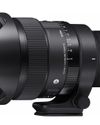
THE LOWDOWN ON THE SIGMA 15 MM F/1.4 ART FISHEYE LENS FOR SONY
Still, I don't want you to think I'm trying to give you the ol' bait-and-switch, so I'll say right from the top that this lens is quite pricey, and it's certainly not for everyone.

FEATURED PHOTOGRAPHER: DINA BELENKO
In this issue, we interview Dina Belenko, the conceptual still life photographer whose work transcends the boundaries of imagination.
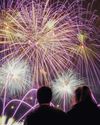
PROVEN TECHNIQUES FOR CAPTURING THE BEAUTY OF FIREWORKS
Snapping the perfect shot of a fireworks display involves more than just pointing and shooting.
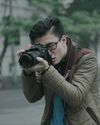
7 REASONS TO USE A DEDICATED CAMERA INSTEAD OF A SMARTPHONE
Nearly all of us us have a smartphone in our pockets and the included cameras have led to a real explosion in photography.
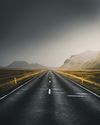
7 COMPOSITION TIPS THAT WILL IMPROVE YOUR PHOTOS
If you've wondered why some photos just look better, one of the secrets is often the composition.
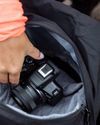
THE LOWDOWN ON THE CANON EOS R50 MIRRORLESS CAMERA
An ideal camera for entry level photographers on a budget
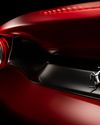
FEATURED PHOTOGRAPHER: DAVID WRAGG
In this issue we featured David Wragg, an English automotive studio photographer. David caught our eye when he shared one of his images with us on Facebook where he captured the sleek curves of the front end of a classic Jaguar E Type.
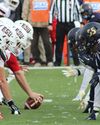
MASTERING SPORTS PHOTOGRAPHY: TECHNIQUES FOR CAPTURING THE ACTION AND FREEZING THE MOMENT
Sport is such a broad and encapsulating term. People across the world love playing and watching a huge variety of sports – from tennis, through football and formula one; every sport will appeal to someone.
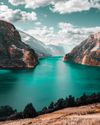
THE BENEFITS OF SHOOTING IN APERTURE PRIORITY MODE:
How Aperture Priority can help you achieve creative control over depth of field
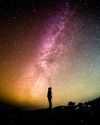
EXPLORE YOUR CREATIVITY AND GET OUT OF YOUR COMFORT ZONE
Whether you’re a professional photographer or just enjoy taking images as an amateur, it’s easy to fall into a comfort zone of always shooting the same thing.